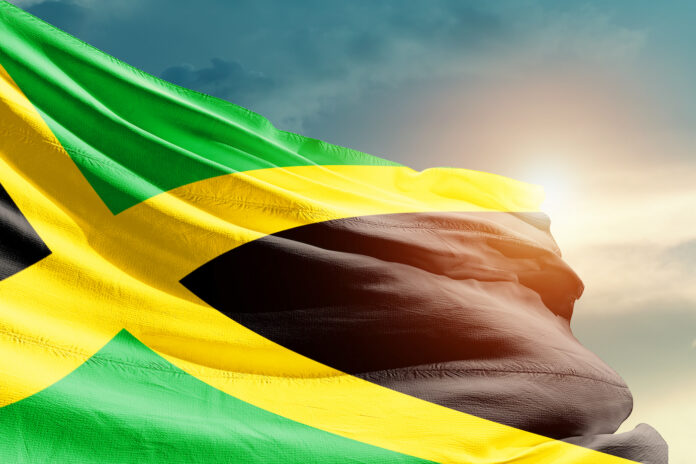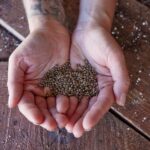Rastafarianism and cannabis are inextricably linked to Jamaica. But which came first, the religion or ganja?
Ganja did. The relationship between cannabis and Jamaica predates the pro-African movement that created Rastafari in the early twentieth century. Cannabis was introduced to the island in the 1850s and ’60s, reportedly in the form of seeds indentured servants from India brought with them. (Both nations were under British rule at the time). This explains much of the India-sourced slang used by Jamaicans when referring to the plant, including the term ganja, which was borrowed from Hindi about 1856.
While not expressly legal, ganja cultivation and use was popular on the island — especially among the lower classes and in poor neighborhoods primarily inhabited by Black former slaves — until the blatantly racist Ganja Law of 1913 outlawed the herb. The act was proposed by the Council of Evangelical Churches and plantation owners, the latter of whom remained prickly after Britain abolished slavery in the colony almost a century earlier. Plantation owners reasoned if members of the ganja-loving population could not obtain their preferred drug, they would settle for rum, from which plantations could profit.
Rastafari developed in Jamaica during the 1930s. While many view it as a social, philosophical, or spiritual movement, Rastafarianism is legally recognized as a religion or sect. Ganja is part of the principal ritual of Rastafari, smoked during groundings. Rastas argue cannabis arose from the biblical Tree of Life, helps users achieve a higher level of consciousness, and has healing properties.
Ganja use in religious rituals also may have been influenced by Indian servants. Consuming bhang, an edible cannabis preparation, is part of ancient Hindu tradition, particularly during the Maha Shivaratri and Holi festivals.
Ganja use remained widespread in Jamaica, despite criminal prosecution and mandatory minimum sentences, thanks in part to its status as a Rastafari rite. In 2015, the Jamaican parliament amended the Dangerous Drugs Act, thereby establishing an exemption for religious use and decriminalizing possession of up to 56.6 grams (approximately two ounces) for personal use. Today, possession of two ounces or less is a petty crime carrying a fine of $500 Jamaican dollars ($5 USD). Smoking ganja in public carries the same fine, and residents legally are allowed to grow as many as five plants. At the same time, the government established a regulated medical marijuana industry.
Among the standout features of Cannabis Licensing Authority (CLA) regulations is a measure meant to curtail outside investment in a now-robust industry where licenses are inexpensive compared to those in the United States and Canada: Cannabis businesses must be majority-owned by Jamaicans. The CLA also authorizes exporting significant quantities of flower, seeds, and oil.
Thanks in large part to reggae artists like Bob and Ziggy Marley, Rastafari and ganja have played a major role in shaping Jamaica’s image on the global stage, giving the country its reputation as one of the cultural epicenters for weed. The concepts of Rasta, ganja, and good vibes arguably have become synonymous with the Caribbean island.
More recently, Jamaica has found itself in a cannabis shortage. The island first saw much of its crop decimated by heavy rains during the 2020 hurricane season, followed by a severe drought that plagued the region. Then, strict COVID-19 curfew restrictions limited farmers’ ability to tend to their crops, further exasperating the supply side. As a result, flower has increased in price and dropped in supply for locals and tourists alike. According to the government’s Cannabis Licensing Authority, the regulated medical market is going strong. They have issued twenty-nine cultivation licenses and a total of seventy-three licenses for processing, distribution, and retail sales. However, much like in the Canadian market, people still turn to the streets due to the excessive cost of regulated offerings.
Of the main points associated with decriminalization, one stands out: Practitioners of the Rastafari faith may use cannabis for religious purposes. This single line of text in decriminalization embodies the very core and culture of Jamaica and the Rastafarian movement. Weaponizing a plant will not deter the most faithful from standing true; while it took decades for this idea to be acknowledged by the state, this, in my mind, is the biggest victory for the people of Jamaica. The “wisdom weed” has persevered through racism, segregation, and weaponization by the powers that be. Every such victory is a win not just for the plant, but for the people it touches and heels. Governments, hurricanes, droughts — nothing will prevent this plant from being embraced.

Lance C. Lambert has spent years building brands and telling stories, first in the mainstream digital media and marketing space prior to making the jump to the legal cannabis industry in late 2013. In 2022, he planted his knowledge and passion-first attitude at Grove Bags, where he’s tasked with growing the company’s brand, audience, and revenue at home and in emerging markets around the globe.










